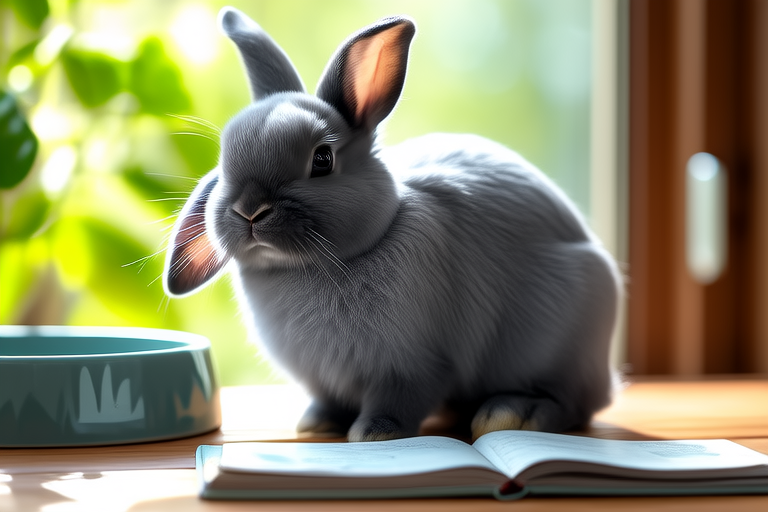Chinchilla Challenges: What Every First-Time Owner Needs to Know Before Buying One
Welcome to the wonderful world of chinchillas! These small, fluffy creatures have captured the hearts of many animal lovers with their playful nature and adorable appearance. However, before you bring home your first chinchilla, it’s crucial to understand the unique demands and responsibilities that come with owning one. This guide will walk you through essential care tips, dietary requirements, housing specifics, common health issues, behavioral insights, and the time commitment involved in chinchilla ownership.
Essential Care Tips
Caring for a chinchilla requires attention to detail and dedication. They are delicate animals that need specific environmental conditions to thrive. Chinchillas are native to the Andes Mountains in South America, where they live in cool, dry climates. Therefore, maintaining a similar environment in your home is vital.
- Temperature: Keep their living space between 60°F and 70°F (15°C to 21°C). Avoid direct sunlight and drafts.
- Humidity: Maintain low humidity levels; chinchillas are susceptible to heatstroke and respiratory problems in humid environments.
- Dust Bathing: Provide a dust bath at least three times a week. This helps them clean their fur and maintain its softness. Use chinchilla-specific dust, not regular sand or dirt.
Dietary Requirements
A well-balanced diet is key to keeping your chinchilla healthy and happy. Their digestive systems are sensitive, so it’s important to provide the right foods.
- Fiber-Rich Hay: Offer unlimited access to Timothy hay. It aids digestion and keeps their teeth worn down.
- Pellets: Provide a high-quality chinchilla pellet that contains no seeds, nuts, or dried fruit. These can cause obesity and dental issues.
- Water: Fresh, clean water should always be available. Consider using a water bottle with a sipper tube.
Occasional treats such as raisins or pellets made specifically for treats can be given but in moderation.
Housing Specifics
Creating the right living space is crucial for your chinchilla’s well-being. The enclosure should be large enough to allow plenty of room for movement and play.
- Size: A minimum of 3 square feet per chinchilla is recommended. Bigger is better, especially if you have more than one.
- Material: Opt for wire cages with a solid bottom tray. Avoid wooden cages as chinchillas can chew through wood.
- Bedding: Use paper-based bedding or recycled newspaper products. Avoid pine and cedar shavings, which can irritate their respiratory system.
- Toys: Provide toys that encourage natural behaviors like chewing and climbing. Rotate toys regularly to prevent boredom.
Ensure the cage is placed in a quiet area away from direct sunlight and drafts.
Common Health Issues
While chinchillas are generally hardy animals, they can suffer from certain health issues if not properly cared for.
- Dental Problems: Overgrown teeth are common due to improper diet or lack of chew toys. Regular veterinary check-ups are necessary to monitor their dental health.
- Gastrointestinal Stasis: This condition occurs when the digestive system slows down or stops. It can be caused by stress, dehydration, or poor diet. Signs include lethargy, loss of appetite, and decreased fecal production.
- Respiratory Infections: These can be caused by cold temperatures, drafts, or high humidity. Symptoms include sneezing, nasal discharge, and labored breathing.
Regular visits to a veterinarian who specializes in exotic pets are essential for early detection and treatment of these issues.
Behavioral Insights
Understanding your chinchilla’s behavior will help you bond with them and ensure their happiness.
- Social Interaction: Chinchillas are social animals and enjoy interaction with their owners. Spend quality time with your chinchilla, but respect their boundaries. Some may become attached to their owners, while others prefer solitude.
- Nocturnal Nature: Chinchillas are most active during the night. Respect their sleep schedule by limiting activity during their resting hours.
- Chewing Behavior: Chinchillas have strong teeth that need constant wear. Provide safe items for them to chew on, such as untreated wooden blocks or cardboard tubes.
Training your chinchilla to trust you and respond positively to handling can take time and patience.
Time Commitment
Owning a chinchilla involves a significant time commitment. While they are relatively independent, they still require daily care and attention.
- Feeding: Check their food and water supply daily. Clean and refill as needed.
- Grooming: Provide dust baths at least three times a week and monitor their bathing behavior.
- Exercise: Allow supervised playtime outside of the cage for mental stimulation and physical exercise.
- Maintenance: Clean the cage weekly to prevent buildup of waste and odors. Replace bedding as needed.
Building a routine around these tasks will help ensure your chinchilla remains healthy and happy.
The Joys of Chinchilla Ownership
Despite the challenges, owning a chinchilla can be incredibly rewarding. Their unique personalities, playful antics, and gentle nature make them delightful companions.
- Playfulness: Watch as they leap from perch to perch or engage in other amusing activities. Each chinchilla has its own distinct personality.
- Trust: With patience and consistency, many chinchillas learn to trust their owners, making for a special bond.
- Quiet Companionship: For those seeking a pet without excessive noise, chinchillas offer a peaceful alternative.
Embrace the journey of learning about your chinchilla and providing them with the best possible life.
Conclusion
Bringing a chinchilla into your home is a big decision that requires careful consideration. By understanding their needs and dedicating yourself to proper care, you can provide a loving and enriching environment for your new furry friend. Remember, owning a chinchilla is not just about having a cute pet but also about being responsible and committed to their well-being. Enjoy the experience of raising these charming creatures and the joy they bring into your life.
